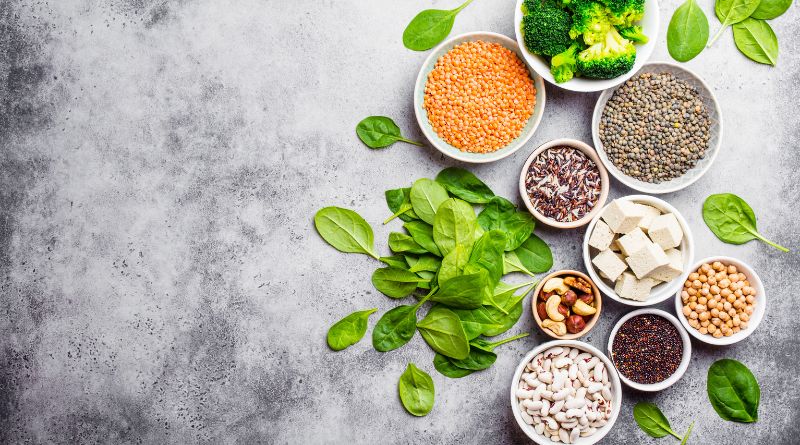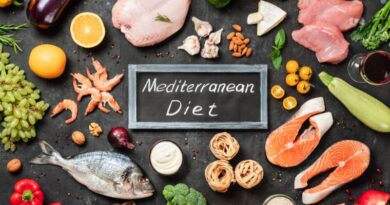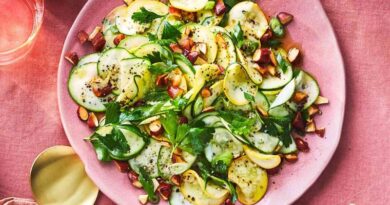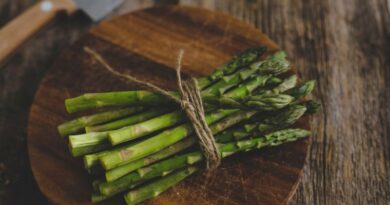Embracing a plant-powered diet doesn’t mean compromising on protein. In fact, there’s a wealth of vegan protein sources that can nourish your body and support your health. Whether you’re a committed vegan, a flexitarian, or simply looking to incorporate more plant-based options into your meals, this blog post is your guide to the top 10 vegan protein sources.
From legumes to grains and nuts, we’ll explore diverse and delicious ways to meet your protein needs while maintaining a compassionate and sustainable dietary lifestyle. Whether you’re an athlete aiming to build muscle or someone seeking a balanced and nutritious diet, you’ll find options to suit your protein requirements.
Unlock the potential of these vegan protein powerhouses, discover creative recipes, and learn how to incorporate these sources into your daily meals. We’ll provide you with the knowledge and inspiration to thrive on a plant-powered diet while enjoying the many benefits it offers.
The Best Vegan Protein Sources
Embracing a vegan lifestyle doesn’t mean sacrificing protein intake. With an array of plant-based protein sources available, you can easily meet your nutritional needs while staying true to your values. In this article, we’ll explore ten of the best vegan protein sources that are not only delicious but also packed with essential nutrients to fuel your body. Protein is an essential component of a balanced diet, playing a vital role in building and repairing tissues, producing enzymes, and supporting overall health. If you’re following a vegan diet, you’ll be pleased to know that there are plenty of diverse and nutritious plant-based sources of protein available to you.
Lentils

Lentils, often regarded as a cornerstone of vegan diets, are prized for their remarkable protein and fiber content. These versatile legumes offer a spectrum of culinary possibilities, making them a valuable addition to a variety of dishes, including soups, stews, curries, and salads.
Lentils provide a hearty and filling protein source, ideal for those seeking to meet their protein needs while embracing a plant-based lifestyle. The rich fiber content in lentils not only supports digestion but also keeps you satiated, making them an excellent choice for weight management and overall well-being.
These nutritional powerhouses are brimming with essential nutrients, including iron, folate, and manganese. Their mild, earthy flavor pairs well with a range of seasonings and ingredients, allowing you to create nourishing and flavorful meals that cater to your dietary preferences and health goals.
Chickpeas
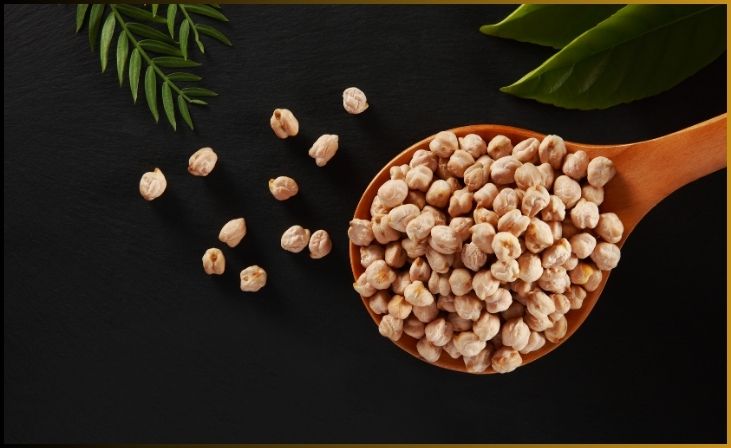
Chickpeas, also recognized as garbanzo beans, are a protein powerhouse that enjoys a prominent place in diverse culinary creations. These versatile legumes have earned their popularity through their wide range of applications, from being the heart of creamy hummus to starring in crunchy roasted chickpea snacks.
Chickpeas not only deliver on taste but also pack a substantial nutritional punch. Their high protein content makes them a valuable component of plant-based diets, supporting muscle health and overall well-being. Moreover, these legumes are a valuable source of dietary fiber, enhancing digestive health and keeping hunger at bay.
Beyond their protein and fiber, chickpeas supply essential nutrients like folate, manganese, and iron, which contribute to your daily nutritional requirements. Their adaptability in various recipes makes them a go-to choice for those seeking both taste and nutrition, whether it’s in soups, salads, or delectable chickpea-based dishes.
Quinoa
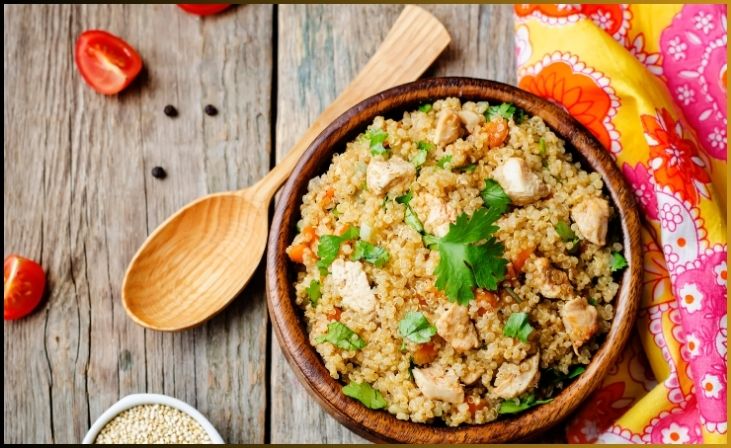
Quinoa, often referred to as a complete protein, stands out as a nutrient-rich seed with the unique distinction of containing all nine essential amino acids. This exceptional composition makes it a prized addition to plant-based diets, offering a complete protein source for muscle health and overall nourishment.
Quinoa’s adaptability in the kitchen makes it a versatile choice for a range of culinary creations, from hearty salads to satisfying bowls and even breakfast dishes. Its mild, slightly nutty flavor complements a wide array of ingredients and seasonings, making it a favorite for those seeking variety in their plant-based meals.
Beyond its protein content, quinoa is rich in essential nutrients like fiber, iron, and magnesium, contributing to digestive health and overall well-being. This seed’s unique nutritional profile, combined with its culinary flexibility, positions it as a fundamental component of a balanced and nutritious diet.
Tofu

Tofu, derived from soybeans, is a plant-based protein powerhouse renowned for its adaptability in the culinary world. Its unique feature is its capacity to absorb and complement a wide range of flavors, rendering it a versatile and valuable ingredient in both savory and sweet dishes.
Tofu’s robust protein content makes it a favored choice for vegans and vegetarians, providing essential amino acids necessary for muscle health and overall well-being. It serves as a canvas for creative cooking, seamlessly integrating into stir-fries, soups, salads, and desserts, showcasing its incredible versatility.
Moreover, tofu boasts additional nutritional benefits, including essential minerals like calcium, iron, and manganese. Its neutral taste profile allows it to harmonize with various seasonings and ingredients, ensuring that whether you’re crafting a hearty main course or a delectable dessert, tofu can excel as the star of the dish.
Quick Link: 10 Tasty Ways to Enjoy Avocados
Tempeh
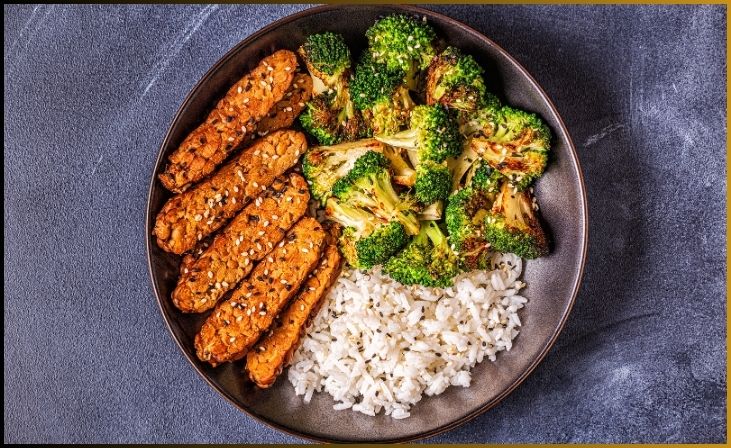
Tempeh, a soy-based protein source, distinguishes itself through a unique fermentation process, which not only enhances its digestibility but also imparts a wealth of probiotics. This nutritional dynamo offers the best of both worlds, delivering plant-based protein while supporting gut health.
With its firm texture and nutty flavor, tempeh lends itself beautifully to a myriad of culinary applications. It serves as an exceptional ingredient in sandwiches, stir-fries, and various dishes, adding a hearty and satisfying element to your meals. Tempeh’s versatility in absorbing flavors and adapting to different cooking methods allows it to shine in both savory and sweet recipes.
In addition to its protein content, tempeh is a rich source of essential nutrients, including iron, calcium, and B vitamins, contributing to overall well-being. As a natural probiotic source, it further supports digestive health. This soy-derived gem offers a delicious and nutritious option for those seeking protein and gut-friendly foods in one wholesome package.
Edamame
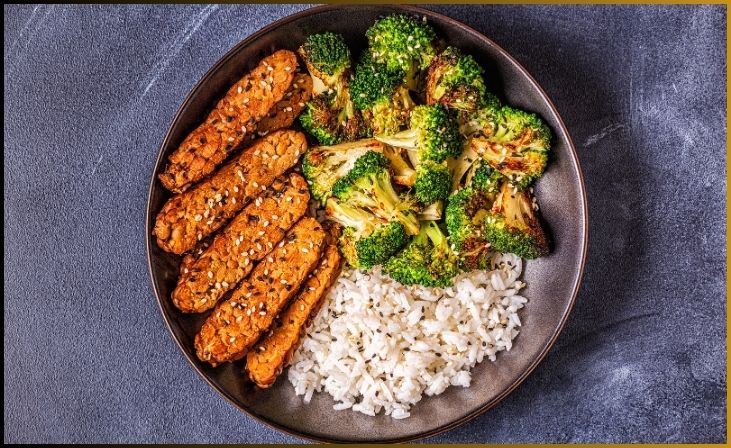
Edamame, or young soybeans, delight the palate as a delectable and protein-packed snack. These vibrant green pods are not only a treat for the taste buds but also a valuable source of plant-based protein, making them a sought-after choice for those looking to boost their protein intake.
The versatility of edamame shines through in various culinary creations, from adding a crunchy and nutritious element to salads to providing a protein boost in stir-fries and heartwarming soups. Their mild, slightly nutty flavor pairs well with a wide array of ingredients and seasonings, making them a favored ingredient in both savory and sweet dishes.
Beyond their protein content, edamame contributes essential nutrients like folate, vitamin K, and dietary fiber, promoting bone health and digestive well-being. As a delightful and protein-rich option, edamame finds a home in a multitude of dishes, offering both taste and nutrition in one vibrant package.
Hemp Seeds
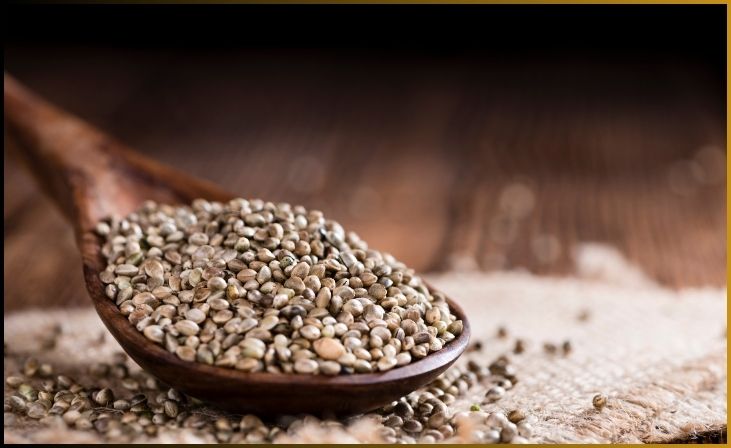
Hemp seeds are a nutritional powerhouse, brimming with a diverse range of health benefits. These tiny seeds provide a substantial dose of protein, making them a valuable addition to various dietary preferences, including plant-based and vegan lifestyles.
What sets hemp seeds apart is their omega-3 fatty acids content, which supports heart health, and brain function, and reduces inflammation. These seeds are not only protein-rich but also a source of essential minerals like magnesium and iron, contributing to overall well-being.
Hemp seeds’ versatility allows them to be sprinkled over salads, blended into smoothies, or mixed with yogurt, providing a protein boost and a delightful nutty flavor. By incorporating these nutritional gems into your meals, you’re not only enhancing the taste but also enriching your diet with a wealth of essential nutrients.
Chia Seeds

Chia seeds are a nutritional marvel, offering a trifecta of benefits: abundant fiber, healthy fats, and a respectable protein content. These small seeds are a powerhouse of plant-based nutrients, making them an excellent choice for those seeking a balanced and nutritious diet.
One of the chia seeds’ unique attributes is their gel-like texture when mixed with liquid, which makes them perfect for creating satisfying puddings and enriching smoothies. This property not only adds a delightful consistency but also enhances its ability to keep you feeling full and satisfied.
Apart from their protein content, chia seeds are packed with essential minerals like calcium, magnesium, and phosphorus, contributing to bone health and overall well-being. By incorporating these versatile seeds into your culinary creations, you’re not only enjoying their unique texture but also reaping the benefits of their impressive nutritional profile.
Green Peas
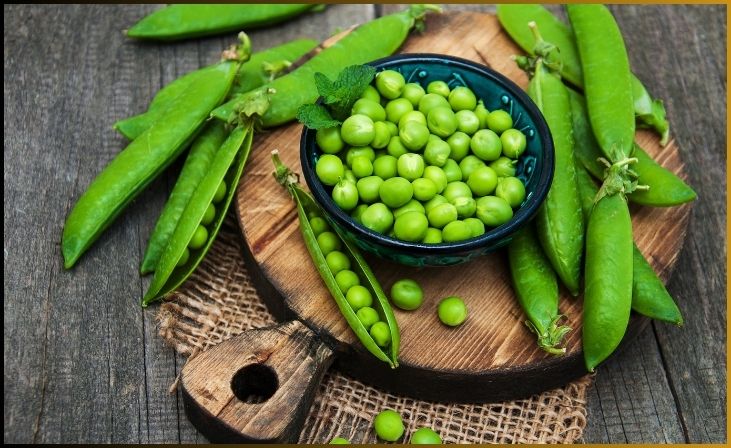
Green peas are a true nutritional gem, offering not only vibrant flavor but also a significant protein punch. These vibrant legumes, often underestimated for their protein content, are a valuable source of plant-based protein, making them an excellent addition to various dietary preferences.
Beyond their protein, green peas are rich in dietary fiber and essential nutrients, including vitamins A, C, and K, and minerals like iron and manganese. This diverse nutrient profile makes them a versatile ingredient in a range of culinary creations, from hearty soups to refreshing salads and flavorful side dishes.
The combination of protein and fiber in green peas not only supports muscle health but also promotes digestive well-being and helps keep you feeling satisfied. By incorporating these versatile legumes into your meals, you’re not only enhancing their taste but also elevating the nutritional content of your dishes.
Spirulina

Spirulina, a remarkable protein source derived from blue-green algae, stands out as a complete protein, providing all essential amino acids. This nutritional powerhouse is a versatile addition to various dietary lifestyles, offering a substantial protein boost.
Spirulina can be conveniently incorporated into your diet in different ways, such as in supplement form, as a smoothie add-in, or as an ingredient in energy bars. Its mild, slightly seaweed-like flavor blends well with other ingredients, allowing you to enjoy an extra protein kick in your daily meals and snacks.
Besides its protein content, spirulina is rich in essential nutrients like iron, B vitamins, and antioxidants, contributing to overall well-being and potentially boosting your energy levels. This superfood not only elevates the nutritional value of your diet but also aligns with your protein needs, making it a go-to choice for those seeking a plant-based protein source.
Plant-Based Protein Sources for Muscle Gain
When it comes to building muscle, protein is an essential nutrient. While many associate protein with animal products, there is a plethora of plant-based protein sources that are not only nutritious but also beneficial for muscle gain. Whether you’re a vegan, vegetarian, or simply looking to incorporate more plant-based options into your diet, these protein-rich foods can help you achieve your muscle-building goals.
The Role of Protein in Muscle Gain
Protein plays a crucial role in muscle growth and repair. It’s composed of amino acids, the building blocks of muscles. Adequate protein intake supports the synthesis of new muscle tissue and helps repair damage caused by intense workouts. While animal sources like meat and dairy are often promoted for their protein content, plant-based options can provide ample protein and come with additional benefits such as fiber and antioxidants.
Legumes
Legumes, including lentils, chickpeas, black beans, and kidney beans, are excellent sources of plant-based protein. They are also high in fiber, which aids digestion and promotes a feeling of fullness. The combination of protein and fiber makes legumes a great choice for maintaining a healthy weight while working on muscle gain. Additionally, they provide complex carbohydrates that offer sustained energy for workouts.
Tofu and Tempeh
Tofu and tempeh are derived from soybeans and are well-known for their protein content. They are considered complete protein sources, meaning they provide all the essential amino acids necessary for muscle growth. Tofu has a mild taste and a versatile texture, making it suitable for a wide range of dishes, from stir-fries to smoothies. Tempeh has a nutty flavor and a firm texture, making it a hearty addition to salads and sandwiches.
Seitan
Seitan, also referred to as wheat gluten, is a high-protein meat substitute commonly used in vegetarian and vegan diets. It has a chewy texture that can resemble meat, making it a popular choice for dishes like stir-fries, sandwiches, and even plant-based sausages. Seitan is particularly rich in protein, making it a valuable addition to a muscle-building diet.
Quinoa
Quinoa is a unique grain that stands out as a complete protein source. It contains all nine essential amino acids, making it comparable to animal-based protein sources. Quinoa is also rich in complex carbohydrates and various nutrients such as magnesium, iron, and fiber. Its versatility allows you to enjoy it as a base for salads, stir-fries, or even as a breakfast cereal.
Nuts and Nut Butter
Nuts, including almonds, peanuts, and cashews, are not only packed with healthy fats but also provide a decent amount of protein. They make for convenient and nutritious snacks that can be easily incorporated into your diet. Nut butter, such as almond butter and peanut butter, offers
a concentrated source of protein and healthy fats. Spread them on whole-grain toast or blend them into smoothies for an extra protein boost.
Also Read: How to make Meatloaf from scratch
Balancing Muscle Gain with Other Nutrients
While protein is essential for muscle gain, it’s important to remember that a balanced diet is key to overall health and well-being. Alongside plant-based protein sources, ensure you’re consuming a variety of nutrient-rich foods, including whole grains, fruits, vegetables, and healthy fats. Staying hydrated, getting enough sleep, and engaging in regular strength training are also crucial components of a successful muscle-building journey.
5 Practical Tips for Successfully Embracing a Plant-Based Diet
In recent years, the popularity of plant-based diets has surged, with more people recognizing the health and environmental benefits of reducing their consumption of animal products. Whether you’re considering transitioning to a plant-based diet or have already embarked on this journey, here are five valuable tips to help you navigate and thrive on this nutritional path.
The Power of a Plant-Based Diet
A plant-based diet centers around consuming foods that primarily come from plants, including vegetables, fruits, legumes, whole grains, nuts, and seeds. This dietary approach is associated with numerous health benefits, such as reduced risk of chronic diseases and improved overall well-being. However, adopting a plant-based diet requires careful consideration and planning to ensure you receive all the necessary nutrients.
Diversify Your Diet
One of the key principles of a successful plant-based diet is diversity. Aim to include a wide variety of plant foods in your meals to ensure you’re getting a broad spectrum of nutrients. Different plant foods provide different vitamins, minerals, and antioxidants, so by diversifying your diet, you enhance your nutritional intake.
Plan Your Meals
Planning balanced meals is crucial to meeting your nutritional needs on a plant-based diet. Incorporate protein-rich sources like beans, lentils, tofu, tempeh, and quinoa into your meals. These foods provide essential amino acids that support muscle growth, repair, and overall health. Pair them with an array of colorful vegetables and whole grains for a well-rounded plate.
Read Labels
Reading food labels becomes even more important when following a plant-based diet. Animal-derived ingredients can sometimes hide under unfamiliar names. To avoid accidentally consuming animal products like dairy, gelatin, or animal-based additives, carefully scrutinize labels and choose products that are explicitly labeled as vegan or plant-based.
Supplement Wisely
While a well-planned plant-based diet can provide many essential nutrients, there are a few that may require extra attention. Vitamin B12, vitamin D, and omega-3 fatty acids are examples of nutrients that could be lacking in a plant-based diet. Consider consulting a healthcare professional and incorporating supplements as needed to ensure your nutritional requirements are met.
Educate Yourself
To thrive on a plant-based diet, it’s important to educate yourself about nutrition. Learn about plant-based sources of protein, iron, calcium, and other essential nutrients. Familiarize yourself with meal planning strategies and cooking techniques to make the most of your dietary choices.
Bottom Line
A plant-powered diet can be both kind to the planet and nourishing for your body. With these 10 vegan protein sources at your disposal, you have the tools to build delicious and protein-packed meals. Whether you’re making a conscious choice for your health, the environment, or animal welfare, there’s no need to compromise on protein intake. As you explore the diverse world of legumes, grains, nuts, and seeds, you’ll discover that a plant-based diet is not only sustainable but also incredibly satisfying. By harnessing the potential of these vegan protein powerhouses, you can craft a dietary lifestyle that supports your well-being while making a positive impact on the world.
FAQs
Absolutely! There are abundant vegan protein sources, including legumes, tofu, tempeh, and plant-based protein powders, that can help you meet your protein needs. By incorporating a variety of these sources into your meals, you can easily attain your protein goals.
While some vegan protein sources are complete proteins, such as quinoa and soy, others may lack certain essential amino acids. To ensure you get a balanced intake of amino acids, it’s beneficial to diversify your diet by incorporating a range of protein-rich plant foods.
Experiment with various cooking methods, seasonings, and sauces to enhance the flavor of vegan protein sources. For example, marinate tofu or tempeh, use herbs and spices generously, and explore different culinary techniques to create tasty and satisfying vegan dishes.
Absolutely. Many plant-based protein sources are not only rich in protein but also lower in saturated fats and calories compared to animal-based proteins. These sources can support your weight management goals while still providing the protein necessary for muscle building and repair. Incorporating vegan protein into a balanced diet can help you achieve your fitness objectives.

